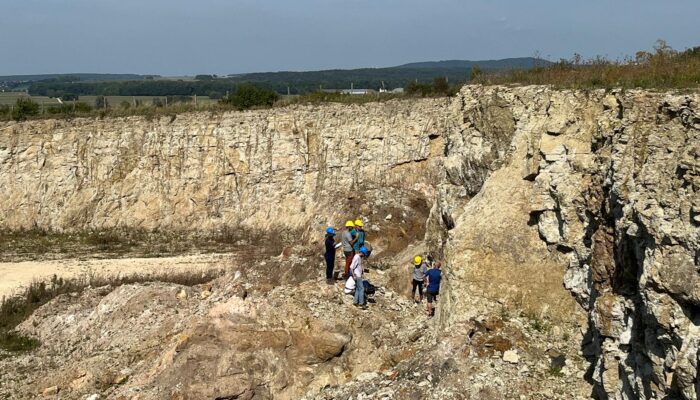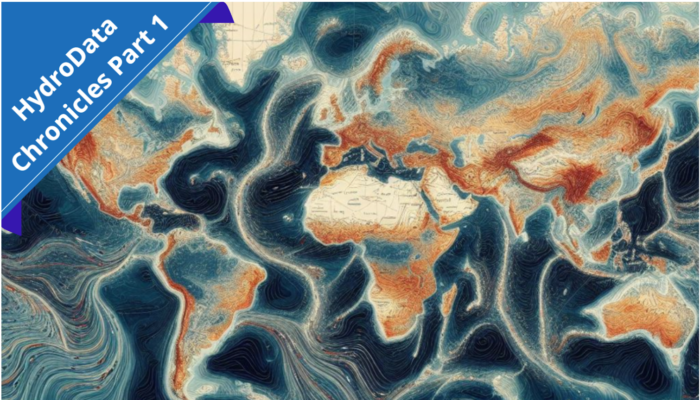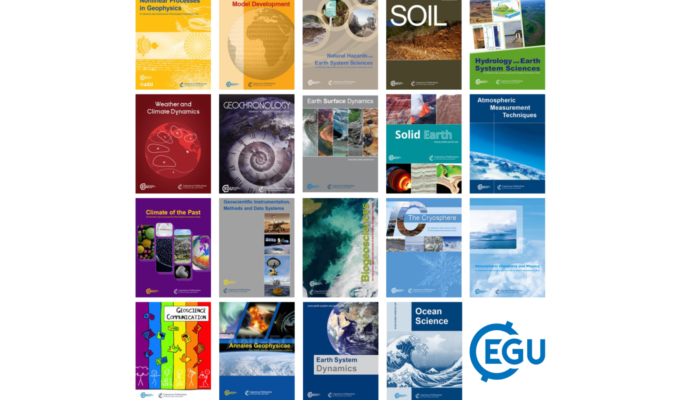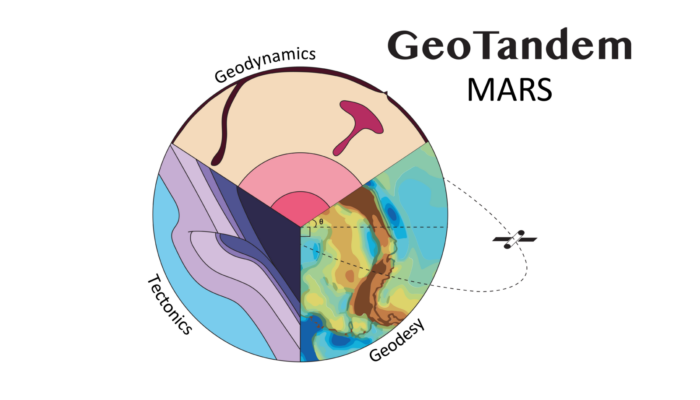Most people spend a lot of time and effort making their presentation engaging and impactful, but how much time to you spend making sure it is accessible!? An accessible presentation takes into account the diverse backgrounds and abilities of the audience, to support a better understanding and of the message and information you are trying to share. This is particularly important for scientific rese ...[Read More]
If you didn't find what you was looking for try searching again.
Geodynamics
Summer of ‘23: Chronicles of a summer school on meteorite and comet impacts.
One of the best-researched and preserved impact craters on Earth is the Ries Crater (Germany). Hikers, bikers, school groups, and geo-tourists from all over the world come here in search for the evidence of the cosmic catastrophe. In this week’s blog post, PhD student Katherine Villavicencio from University G. d’Annunzio (Italy) shares her experience when attending the Summer School “Impacts and ...[Read More]
Hydrological Sciences
HydroData Chronicles: A High-Resolution 40-Year Rainfall Dataset Covering the Entire Contiguous US
Welcome to our new blog-series focused on exploring the vast, yet fascinating world of hydrological datasets: HydroData Chronicles! Throughout this series, we embark on a journey through the intricate backend of hydrology, where data serves as the cornerstone of our understanding of water resources, as well as their potential impact on scientific research and policy-making. Join us as we navigate ...[Read More]
GeoLog
Imaggeo On Monday: the EGU Photo Competition – 3 DAYS LEFT!
We are so excited for your images to show us other ways of experiencing this wonderful planet and our place in the wider dance of our solar system, in the EGU24 Photo Competition just like one of our first ever winners, Christian Klepp did with this gorgeous image ‘Patterns in the Void’ in 2010. Remember your image can be of anything, even a gif or a video, and can have been captured a ...[Read More]
GeoLog
Imaggeo On Monday: the EGU Photo Competition – not just landscapes!
In 2010 EGU held our first annual Photo Competition at the General Assembly in Vienna. Since then hundreds of photos have been shared on imaggeo by geoscientists and researchers just like you, with a lucky few being selected each year to be highlighted during the meeting and voted on by our members. These images can be of anything to do with geology or geoscience – we get many beautif ...[Read More]
GeoLog
First time at an EGU General Assembly? We got you covered!
Europe’s biggest geoscience conference, EGU24, is only one month away! Each year, the EGU General Assembly brings together over 17,000 researchers, scientists, academics and journalists to discuss and share the latest developments in planetary exploration, Earth observation, polar science, climate change, natural hazards, and much more. And it is held at the Austria Centre Vienna (ACV) which is bi ...[Read More]
GeoLog
GeoTalk: Gillian D’Souza reflects on her time as EGU’s Media Relations Manager
Gillian D’Souza is the European Geosciences Union’s outgoing Media Relations Manager. During her time at EGU Gillian deftly handled the Union’s media interaction and made strides in developing how the Union works with journalists. With Gillian now leaving EGU, we asked her to reflect on her time working for the Union at the science-media interface. Hello Gillian. During your time at E ...[Read More]
GeoLog
GeoRoundup: the highlights of EGU Journals published during February!
Each month we feature specific Divisions of EGU and during the monthly GeoRoundup we put the journals that publish science from those Divisions at the top of the Highlights roundup. For February, the Divisions we are featuring are: Natural Hazards (NH) and Sedimentology, Stratigraphy and Paleontology (SSP). They are served by the journals: Natural Hazards and Earth System Sciences (NHESS), Solid E ...[Read More]
Geomorphology
A Day in the Life – Andreas Ruby
This blog post is part of our series: “A day in the life of a geomorphologist” for which we’re accepting contributions! Please contact one of the GM blog editors, Emily or Emma, if you’d like to contribute on this topic, or others. by Andreas Ruby, Doctoral Researcher, GFZ Potsdam, Germany Email: andreas.ruby@gfz-potsdam.de Hi, I’m Andi, and it still feels quite fresh, but as of now I’ve already ...[Read More]
Geodynamics
Geotandem: The Red Planet, often recognized as a dead planet, is not quite dead after all, at least geodynamically speaking
Welcome to the first of its kind, the Geotandem 01! A collaborative series between EGU divisions. Interdisciplinarity is intrinsic to Geosciences, so we want to showcase how researchers approach the same topics from different but also complementing perspectives. In each edition, we will bring you a high-interest topic for the community seen from the eyes of diverse disciplines. Today, the Tectonic ...[Read More]










